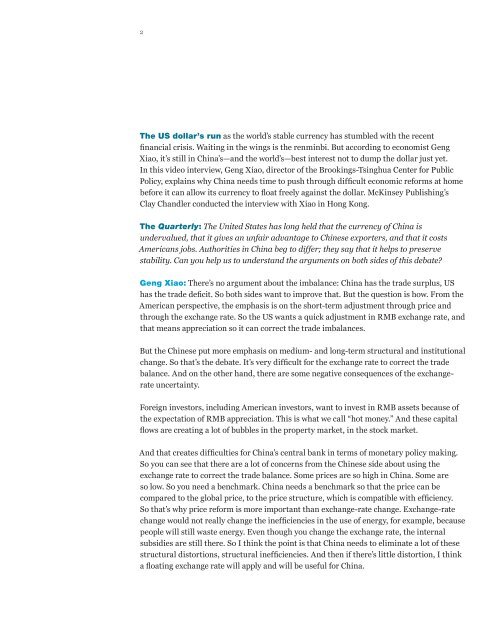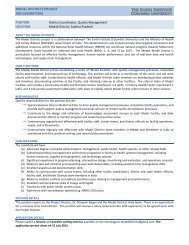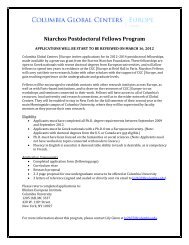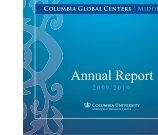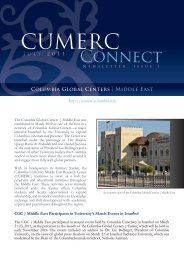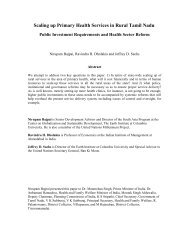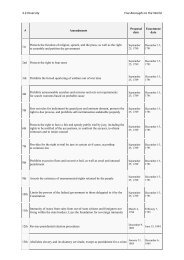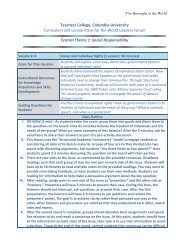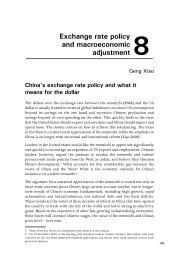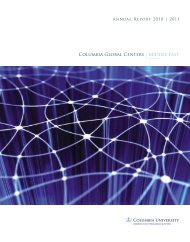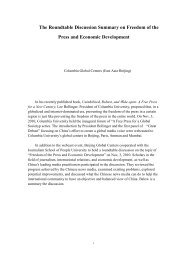Is the Renminbi the Next Global Currency, McKinsey - Columbia ...
Is the Renminbi the Next Global Currency, McKinsey - Columbia ...
Is the Renminbi the Next Global Currency, McKinsey - Columbia ...
You also want an ePaper? Increase the reach of your titles
YUMPU automatically turns print PDFs into web optimized ePapers that Google loves.
2<br />
The US dollar’s run as <strong>the</strong> world’s stable currency has stumbled with <strong>the</strong> recent<br />
financial crisis. Waiting in <strong>the</strong> wings is <strong>the</strong> renminbi. But according to economist Geng<br />
Xiao, it’s still in China’s—and <strong>the</strong> world’s—best interest not to dump <strong>the</strong> dollar just yet.<br />
In this video interview, Geng Xiao, director of <strong>the</strong> Brookings-Tsinghua Center for Public<br />
Policy, explains why China needs time to push through difficult economic reforms at home<br />
before it can allow its currency to float freely against <strong>the</strong> dollar. <strong>McKinsey</strong> Publishing’s<br />
Clay Chandler conducted <strong>the</strong> interview with Xiao in Hong Kong.<br />
The Quarterly: The United States has long held that <strong>the</strong> currency of China is<br />
undervalued, that it gives an unfair advantage to Chinese exporters, and that it costs<br />
Americans jobs. Authorities in China beg to differ; <strong>the</strong>y say that it helps to preserve<br />
stability. Can you help us to understand <strong>the</strong> arguments on both sides of this debate?<br />
Geng Xiao: There’s no argument about <strong>the</strong> imbalance: China has <strong>the</strong> trade surplus, US<br />
has <strong>the</strong> trade deficit. So both sides want to improve that. But <strong>the</strong> question is how. From <strong>the</strong><br />
American perspective, <strong>the</strong> emphasis is on <strong>the</strong> short-term adjustment through price and<br />
through <strong>the</strong> exchange rate. So <strong>the</strong> US wants a quick adjustment in RMB exchange rate, and<br />
that means appreciation so it can correct <strong>the</strong> trade imbalances.<br />
But <strong>the</strong> Chinese put more emphasis on medium- and long-term structural and institutional<br />
change. So that’s <strong>the</strong> debate. It’s very difficult for <strong>the</strong> exchange rate to correct <strong>the</strong> trade<br />
balance. And on <strong>the</strong> o<strong>the</strong>r hand, <strong>the</strong>re are some negative consequences of <strong>the</strong> exchangerate<br />
uncertainty.<br />
Foreign investors, including American investors, want to invest in RMB assets because of<br />
<strong>the</strong> expectation of RMB appreciation. This is what we call “hot money.” And <strong>the</strong>se capital<br />
flows are creating a lot of bubbles in <strong>the</strong> property market, in <strong>the</strong> stock market.<br />
And that creates difficulties for China’s central bank in terms of monetary policy making.<br />
So you can see that <strong>the</strong>re are a lot of concerns from <strong>the</strong> Chinese side about using <strong>the</strong><br />
exchange rate to correct <strong>the</strong> trade balance. Some prices are so high in China. Some are<br />
so low. So you need a benchmark. China needs a benchmark so that <strong>the</strong> price can be<br />
compared to <strong>the</strong> global price, to <strong>the</strong> price structure, which is compatible with efficiency.<br />
So that’s why price reform is more important than exchange-rate change. Exchange-rate<br />
change would not really change <strong>the</strong> inefficiencies in <strong>the</strong> use of energy, for example, because<br />
people will still waste energy. Even though you change <strong>the</strong> exchange rate, <strong>the</strong> internal<br />
subsidies are still <strong>the</strong>re. So I think <strong>the</strong> point is that China needs to eliminate a lot of <strong>the</strong>se<br />
structural distortions, structural inefficiencies. And <strong>the</strong>n if <strong>the</strong>re’s little distortion, I think<br />
a floating exchange rate will apply and will be useful for China.


